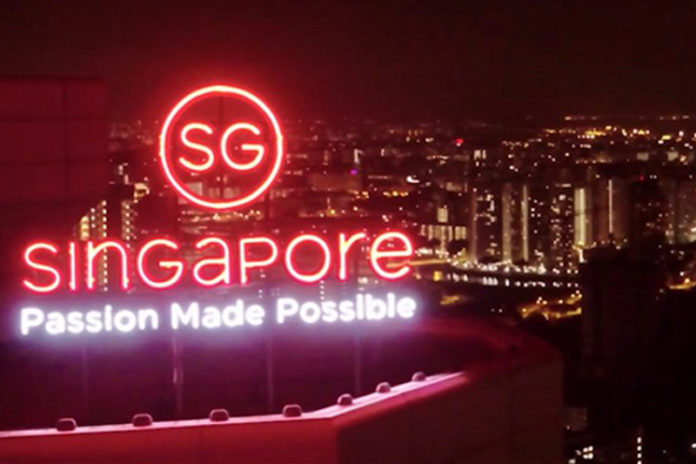The Singapore Tourism Board – or STB – had a novel idea: to promote the country’s tourism, why not support companies that are developing modern technologies that will supercharge the travel and tourism industry? Thus, the Singapore Tourism Accelerator was born.
Organised with corporate partner Ravel Innovation, the STB’s business accelerator program is a highly selective, equity-free, four-month search for companies developing solutions that will help future-proof travel and tourism in Singapore. To facilitate this search, STB recently hosted its fourth demo day where a handful of local and global start-ups presented their technology solutions, each seeking to address business challenges – especially those brought about by COVID-19.
Alvin Tan, Minister of State, Trade and Industry, Culture, Community and Youth, Singapore attended the event as well. During his speech, Tan remarked that virtual and hybrid worlds are here to stay; for businesses to survive the crisis, they need these solutions to function fully.
Tan concluded by saying: “As we ride through this pandemic in the tourism industry, we must try to innovate so that we can thrive in the COVID situation. So, businesses must reimagine, redesign, rediscover, and then re-accelerate.”
Keith Tan, chief executive of the STB, observed that a decade ago, people would have said the tourism business is not digitally savvy, but this has changed today. COVID has driven this change significantly, accelerating digitalisation and technological transformation.
According to Tan, the STB is here to support the tourism industry and carry out the following:
- Boost its ability to reach out to new markets.
- Create new offerings, and boost the quality of experiences through technology and digital transformation
- Help Singapore reach more people, create more great experiences, and make Singapore a distinctive destination.
Tan expressed hope that through the presentations, decision-makers would realise that some of the things they previously didn’t see as possible could be enabled for their own organisations. “STB is not a tech company, but we are here to facilitate a marketplace of ideas, where there are great solution providers around the world and companies in Singapore that are willing to pilot these innovative solutions, and see how they work,” he said.
Here are some of the startups that joined the presentation:
LEDR Technologies
Specialising in analytics, artificial intelligence (AI), cloud data services, and data warehouses, LEDR creates a real-time digital representation of an organisation. This digital “twin” can be used to simulate processes and predict how they will perform. Instead of running or updating reports and analyses, every piece of knowledge and insight is continuously updated as events occur.
This is done through LEDR’s Orchestra platform, which overlays standalone systems to enable organisations to integrate all relevant knowledge (e.g. data, policy, rules), so they can generate insights that will help in making business decisions.
LEDR’s approach breaks down solutions into key parts of “knowledge assets,” “algorithms,” and “user applications.” All components work together to create an extensible framework for organisations to build more custom applications.
LEDR said it is working with SATS – the ground-handling and in-flight catering service provider at Changi Airport. With LEDR, SATS and its partners are able to share data without giving up information. LEDR has eliminated the need to centralise data, helping SATS and its partners to have a more secure and private way to share knowledge.
Quincus
Singapore-based Quincus uses an artificial-intelligence-based software that aims to address supply chain problems. Their technology provides real-time visibility and machine learning (ML) optimisation, and uses a single source of truth design so that everyone in the organisation can make decisions using the same data.
The Quincus platform includes the following modules: a dashboard for central admin control, dispatch management, order management, a “GeoEngine” for verifying shipping addresses, a logistics engine for automating operations and deliveries, a real-time pricing tool, a shipment processing dashboard, and an open API for convenient integration with a range of vendors.
In their presentation, Quincus said their system is adopted in 48 countries, handles around 70 million shipments per month, and has processed around 1.4 quadrillion data points.
Quincus revealed that they have been working with the Pontiac Land Group, a privately-held property developer also based in Singapore. Using the Quincus platform, Pontiac Land Group seeks to reduce its delivery costs, increase delivery flexibility, and improve end-to-end, real-time visibility and de-congestion at its hotel delivery bays.
Kotozna
Tokyo-headquartered Kotozna is an IT-service company that aims to break down language barriers through its real-time, AI-powered multi-language translation products. This includes Kotozna Chat, which comes with simultaneous translation between different messaging platforms; and Kotozna Camera, which translates Japanese content (e.g. restaurant menus).
Kotozna’s products are designed to help provide multilingual digital concierge services for guests to easily communicate with staff while promoting a hygienic, contactless environment for hotel safety.
As to tourism specifics, Kotozna developed a multilingual live chat for Marina Bay Sands, an integrated resort in Singapore. The tool enables communication between staff and the resort’s Japanese customers.
NextOrbit
NextOrbit is an AI-driven software-as-a-service (SaaS) forecasting and pricing company that claims that through their predictive algorithms, they can improve store or online sales for retailers and brands by about 5%-15%, provide a 5% reduction in inventory, increase customer basket size, and maximise business profits.
For an actual use case, NextOrbit is enabling Changi Travel Services – a subsidiary of Changi Airport Group – to become more price-competitive by understanding its competitors’ prices. The NextOrbit platform uses ML to identify matching products on 11 competitor websites.
Skyfii
Skyfii is an Australian software technology company that provides analytics and data-driven marketing products. They help physical venues use data to measure, predict, and influence visitor behaviour.
The publicly traded Skyfii offers a cloud-based SaaS solution called the IO Platform, which integrates location and behaviour-based communications software to manage devices that detect building, room, and desk occupancy, as well as climate monitoring data across multiple locations.
The National Heritage Board deploys web-based chatbots at different venues to engage with visitors, and help guide and improve their experience. Likewise, the chatbot at Sun Yat-Sen Nanyang Memorial Hall typically sees hundreds of users every month as per their presentation slide. Skyfii has been engaged to help understand and derive value from the recorded data to provide insight and analysis.
Gnowbe
Gnowbe is a microlearning platform designed for content creators and trainers in organisations to scale experiential, participatory learning on mobile. Its goal is to help employees develop real skills and/or change mindsets and behaviours. Powered by Analytics, Gnowbe’s platform makes content bite-sized and conveniently accessible.
Through Gnowbe’s authoring and analytics platform, Frasers Hospitality – a Singapore-based hospitality operator – was able to meet business needs by training its service staff.
Xctuality
Singapore-based Xctuality develops technologies like virtual reality, mixed reality, and augmented reality.for virtual events. Xtuality does this through an immersive and interactive 360-degree environment that can do multiple streams on desktop or mobile, but without the need for special goggles.
Additionally, features such as gameplay, streaming, messaging, ticketing/registration, e-commerce and other functionalities can be incorporated to provide a customised solution for clients.
Xtuality has worked with the National Heritage Board and Far East Hospitality (a local hospitality operator), providing a web-based experience featuring gamified interaction and creating a web-based wedding experience, respectively.
Ulisse
Ulisse is a proprietary, self-service, Internet-of-Things platform that turns physical spaces into intelligent spaces through analytics. The platform gives access to physical space analytics via modular AI on low-power compute platforms using sensing technologies like neuromorphic vision and radar.
Ulisse is enabling Mount Faber Leisure (an operator of leisure services) to access Singapore Cable Cars (a gondola lift) with real-time occupancy data using a solution based on radar technology able to detect occupancy with up to 70% accuracy.
The company is also developing a solution for Wildlife Reserves Singapore (now the Mandai Wildlife Group), an organisation that manages Mandai Wildlife Reserve. The technology will be used to track and identify their elephants, so that Mandai knows where each is located in the reserve, enabling them to help the elephants’ overall well-being.
















